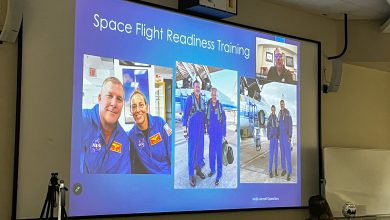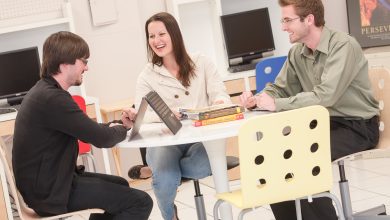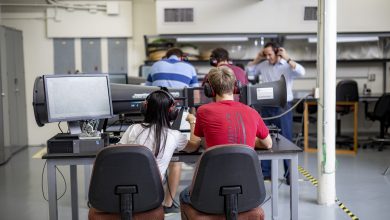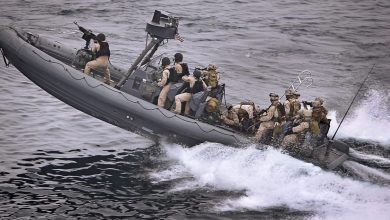Florida Tech Team Takes First Place in State Satellite Design Competition
MELBOURNE, FLA. — The Florida Tech team took first place in the Florida University Satellite Design Competition (FUNSAT) held in Gainesville in May. The
University of Florida also took first place. Other finalists were Florida International University and Embry-Riddle Aeronautical University.
Florida Tech was awarded full funding to build the satellite over the summer and fall. Space Florida has agreed to provide a launch site when the satellite
is ready for flight.
“This will be the first Florida Tech satellite in space and a great way to celebrate the university’s 50th anniversary,” said Donald Platt, team adviser
and Florida Tech Extended Studies Space Systems program director at Spaceport, Kennedy Space Center.
The satellite is known as a cubesat, a tiny spacecraft, which had competition limits of one kilogram mass and four inches cubed. Florida Tech’s design came
in at just over one-half a kilogram. The student experiment to be placed in the cubesat is a biological fuel cell.
When the cubesat experiment is launched into space it can provide data valuable to future human space travel. When humans go on long missions to the moon
or Mars, they may use bacteria to generate electricity as well as oxygen.
Bacteria may also be useful for digesting waste products. On Earth, as well as in space, the bacteria are a good alternative energy source.
Team members are undergraduates — primarily seniors — who used the project to fulfill their student design requirement, necessary for engineering majors to
graduate. Team co-leaders were Daniel Hendrickson and Amanda Rohrbach; team members were Vallen Bee, Ryan Bigham, Michael Crandall, Hector Martin, Tim
Osterhout, Daniel Puig and Allyssa Stanley. Adviser for the required project was Paavo Sepri, associate professor of mechanical and aerospace engineering.
As some team members just graduated in May, the team is seeking other students to take their place. The project also requires donations of test facilities
to verify the spacecraft is ready for flight.
The main objectives of the FUNSAT competition are promotion of an interdisciplinary project for systems engineering, supporting a test bed for advanced
technologies and promoting advanced study and career development for Florida students in the aerospace field.
For more information about the Florida Tech FUNSAT team, contact Platt at dplatt@fit.edu.




